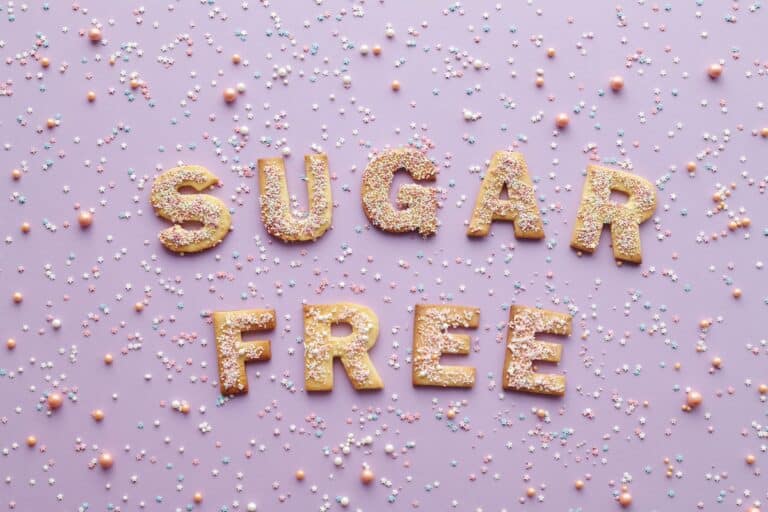How does sugar disrupt sleep?
Posted on November 22nd, 2023 to Cannabis and Aging by christopher

The Sugar and Sleep Connection:
To understand how sugar can affect your sleep, it’s essential to grasp the intricate relationship between your diet and your circadian rhythm, the body’s internal clock that regulates sleep and wake cycles. Your circadian rhythm relies on various cues, including light exposure, meal timing, and hormone release. Sugar consumption can disrupt this delicate balance in several ways.
- Blood Sugar Spikes and Crashes:
One of the most direct ways sugar affects sleep is through its impact on blood sugar levels. When you consume sugary foods or beverages, your blood sugar levels can spike rapidly. This surge in energy can make you feel awake and alert initially. However, your body responds to this sugar rush by releasing insulin to bring your blood sugar back down to a normal range. This rapid drop in blood sugar can lead to feelings of fatigue, irritability, and even hunger.
These blood sugar fluctuations can be particularly problematic at night. If you consume sugary snacks or drinks close to bedtime, your body may experience a blood sugar crash just as you’re trying to fall asleep. This can lead to restlessness, tossing and turning, and difficulty staying asleep throughout the night.
- Disrupted Sleep Architecture:
Sleep consists of several stages, including rapid eye movement (REM) sleep and non-REM sleep. These stages are crucial for restorative rest and memory consolidation. Sugar can disrupt your sleep architecture by causing frequent awakenings during the night and reducing the amount of time spent in deep, restorative sleep stages.
Studies have shown that high sugar intake can lead to an increased number of nighttime awakenings and a decrease in slow-wave sleep, which is essential for physical and mental recovery. Even if you do manage to fall asleep after consuming sugary foods or drinks, the quality of your sleep may suffer, leaving you feeling groggy and unrested in the morning.
- Increased Risk of Sleep Disorders:
Chronic high sugar consumption has been linked to an increased risk of sleep disorders such as sleep apnea and insomnia. Sleep apnea is a condition characterized by interruptions in breathing during sleep, leading to frequent awakenings and poor sleep quality. While obesity and other factors contribute to sleep apnea, high sugar intake can exacerbate the condition by promoting weight gain and inflammation.
On the other hand, excessive sugar consumption can also contribute to insomnia by causing anxiety and restlessness. The sugar-induced rollercoaster of blood sugar levels can trigger stress hormones like cortisol, making it difficult to relax and fall asleep.
Mitigating the Effects of Sugar on Sleep:
Now that we understand how sugar can interfere with sleep, let’s explore some strategies to mitigate its effects:
- Reduce Sugar Intake:
The most straightforward approach is to reduce your overall sugar intake, especially in the hours leading up to bedtime. Avoid sugary snacks, desserts, and beverages, and opt for healthier alternatives like herbal tea or a small serving of fruit if you need a late-night snack.
- Choose Low Glycemic Index (GI) Foods:
Foods with a low glycemic index release sugar into the bloodstream more gradually, reducing the risk of blood sugar spikes and crashes. Incorporate complex carbohydrates like whole grains, legumes, and vegetables into your evening meals to promote more stable blood sugar levels.
- Timing Matters:
Be mindful of when you consume sugary foods and drinks. Try to enjoy them earlier in the day rather than close to bedtime to allow your body more time to process the sugar and stabilize your blood sugar levels before sleep.
- Balanced Meals:
Opt for balanced meals that include a combination of carbohydrates, proteins, and healthy fats. This can help slow the absorption of sugar and maintain more stable blood sugar levels.
- Stay Hydrated:
Proper hydration is essential for good sleep. Drinking enough water throughout the day can help flush excess sugar from your system and prevent dehydration, which can lead to disrupted sleep.
- Regular Exercise:
Regular physical activity can improve sleep quality and help regulate blood sugar levels. Aim for at least 30 minutes of moderate exercise most days of the week, but avoid intense workouts too close to bedtime, as they can have the opposite effect.
7. Make sure your cannabis edibles are sugar-free
A quiet connector between many of these sleep-related themes is the cannabis edibles that many of us take for sleeping. It’s interesting to know that a cannabis edible, which we would think should be good for sleep, can have the opposite effect if it’s full of sugar. But think about it! Anything with sugar, as we’ve seen here, messes with delicate systems that govern sleep. So, if you have the option, such as Jenny’s Zee Zee Gummies with 5mg of fast-acting THC, 2.5 mg of calming CBN, melatonin, and a zero-glycemic sweetener that won’t keep you awake (or damage your teeth, btw) … now that’s something to consider!
Conclusion:
While sugar may offer a temporary energy boost, its negative effects on sleep quality are well-documented. The blood sugar spikes and crashes caused by excessive sugar consumption can lead to restlessness, disrupted sleep architecture, and an increased risk of sleep disorders. To promote better sleep, it’s essential to be mindful of your sugar intake, choose healthier options, and pay attention to meal timing. By making these adjustments, you can enjoy sweeter dreams and wake up feeling more refreshed and rested.
Copyright © 2024 Jenny Loves Me |
Site by CannaPlanners




